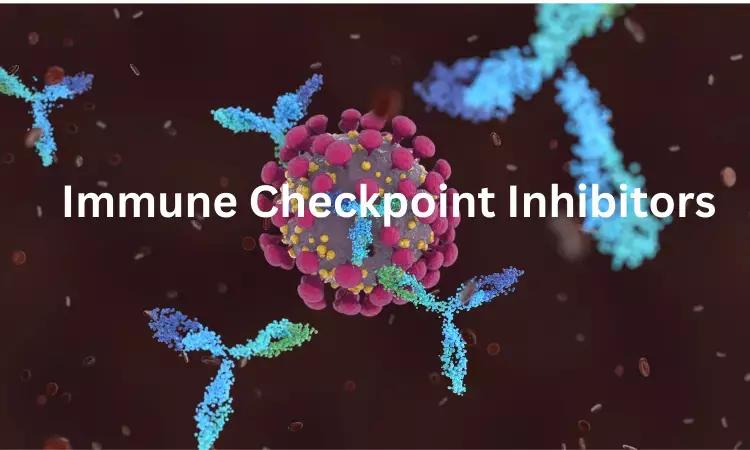- Home
- Medical news & Guidelines
- Anesthesiology
- Cardiology and CTVS
- Critical Care
- Dentistry
- Dermatology
- Diabetes and Endocrinology
- ENT
- Gastroenterology
- Medicine
- Nephrology
- Neurology
- Obstretics-Gynaecology
- Oncology
- Ophthalmology
- Orthopaedics
- Pediatrics-Neonatology
- Psychiatry
- Pulmonology
- Radiology
- Surgery
- Urology
- Laboratory Medicine
- Diet
- Nursing
- Paramedical
- Physiotherapy
- Health news
- Fact Check
- Bone Health Fact Check
- Brain Health Fact Check
- Cancer Related Fact Check
- Child Care Fact Check
- Dental and oral health fact check
- Diabetes and metabolic health fact check
- Diet and Nutrition Fact Check
- Eye and ENT Care Fact Check
- Fitness fact check
- Gut health fact check
- Heart health fact check
- Kidney health fact check
- Medical education fact check
- Men's health fact check
- Respiratory fact check
- Skin and hair care fact check
- Vaccine and Immunization fact check
- Women's health fact check
- AYUSH
- State News
- Andaman and Nicobar Islands
- Andhra Pradesh
- Arunachal Pradesh
- Assam
- Bihar
- Chandigarh
- Chattisgarh
- Dadra and Nagar Haveli
- Daman and Diu
- Delhi
- Goa
- Gujarat
- Haryana
- Himachal Pradesh
- Jammu & Kashmir
- Jharkhand
- Karnataka
- Kerala
- Ladakh
- Lakshadweep
- Madhya Pradesh
- Maharashtra
- Manipur
- Meghalaya
- Mizoram
- Nagaland
- Odisha
- Puducherry
- Punjab
- Rajasthan
- Sikkim
- Tamil Nadu
- Telangana
- Tripura
- Uttar Pradesh
- Uttrakhand
- West Bengal
- Medical Education
- Industry
Immune checkpoint inhibitors linked to greater incidence of endocrine immune-related adverse events

In the past 5 years, the development of immune checkpoint inhibitors targeting cytotoxic T-lymphocyte antigen 4 (CTLA-4) and programmed cell death protein 1 (PD-1) has led to durable tumor responses in various cancers.
However, targeting the immune system can trigger immune‐related adverse events (irAEs) involving various organ systems including gastrointestinal (enterocolitis, celiac disease, gastritis), dermatologic (maculopapular rash, vitiligo, psoriasis) , and hepatic (hepatitis), as well as endocrine reactions.
To assess the risk and incidence of eirAEs of any grade and grade 3-5 by immune checkpoint inhibitor (ICI) mono or combination-therapy in solid tumors researchers designed a new study and aimed to update literature in this comprehensive meta-analysis.
The study published in The Journal of Clinical Endocrinology and Metabolism found that that risk and incidence of endocrine immune-related adverse events (irAEs) are significantly increased following cancer treatment with immune checkpoint inhibitors (ICIs). Combination of ICIs is increasing the risk for eirAEs, in particular for hypophysitis/hypopituitarism.
Researchers conducted an electronic search using PubMed/Medline, Embase and the Cochrane Library was performed. Randomized controlled studies (RCT) assessing eirAEs under ICI-mono or ICI-combination therapy were selected. Stata software version 17 was used for statistical analyses and risk of bias was evaluated by using Review Manager version 5.3.
The key findings of the study are
• Out of 69 RCTs with 80 independent reports, involving 42,886 patients were included in the study.
• Meta-analysis revealed the following pooled estimates for the risk ratio and the incidence, respectively: for any grade hypothyroidism 7.81 (95% CI, 5.68-10.74, p< 0.0001) and 7.64% (95% CI, 6.23-9.17, p< 0.0001); significantly increased also for hyperthyroidism, hypophysitis/hypopituitarism.
• Similarly adrenal insufficiency; and for insulin-dependent diabetes mellitus 1.52 (95% CI, 1.07-2.18, p= 0.02), and 0.087% (95% CI, 0.019-0.189, p= 0.0006), respectively.
• Meta-regression showed that combination of ICIs (nivolumab plus ipilimumab and durvalumab plus tremelimumab, respectively) is an independent risk factor for any grade hypophysitis/hypopituitarism.
• ICI agent is an independent factor of risk for adrenal insufficiency, but that cancer type is not an independent risk factor for eirAEs.
Researchers concluded that “We showed that risk, independent from cancer type, and incidence of eAEs are substantially increased under ICI therapy. Combination of ICIs is increasing the risk for eirAEs, in particular for hypophysitis/hypopituitarism.”
Reference: Irfan Vardarli, Susanne Tan, Tim Brandenburg, Frank Weidemann, Rainer Görges, Ken Herrmann, Dagmar Führer, Risk and incidence of endocrine immune related adverse effects under checkpoint inhibitor mono or combination therapy in solid tumors: a meta-analysis of randomized controlled trials, The Journal of Clinical Endocrinology & Metabolism, 2023;, dgad670, https://doi.org/10.1210/clinem/dgad670
MSc. Neuroscience
Niveditha Subramani a MSc. Neuroscience (Faculty of Medicine) graduate from University of Madras, Chennai. Ambitious in Neuro research having worked in motor diseases and neuron apoptosis is interested in more of new upcoming research and their advancement in field of medicine. She has an engrossed skill towards writing and her roles at Medical dialogue include Sr. Content writer. Her news covers new discoveries and updates in field of medicine. She can be reached at editorial@medicaldialogues.in
Dr Kamal Kant Kohli-MBBS, DTCD- a chest specialist with more than 30 years of practice and a flair for writing clinical articles, Dr Kamal Kant Kohli joined Medical Dialogues as a Chief Editor of Medical News. Besides writing articles, as an editor, he proofreads and verifies all the medical content published on Medical Dialogues including those coming from journals, studies,medical conferences,guidelines etc. Email: drkohli@medicaldialogues.in. Contact no. 011-43720751


